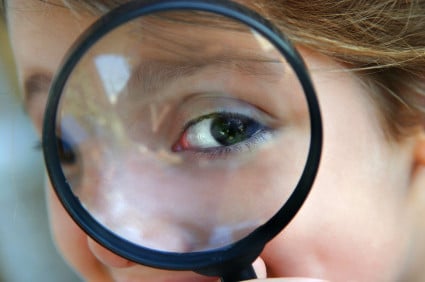
Obsessive/compulsive Disorder (OCD) affects children, adolescents and adults. However, there is a growing belief that OCD that occurs at a very young age may be a different type to that which affects older people.
What is OCD?
OCD usually means that the affected person suffers from obsessions and compulsions. Less frequently the person may experience one but not the other.
Obsessions are intrusive unwanted thoughts, ideas, urges, impulses or worries that repeatedly run through a person’s mind. Almost by definition these will be alarming or repugnant. They may include:
· Vivid images of hurting or in some way abusing a loved family member;
· Worries about dirt, germs, infection or contamination (affecting the person themselves or family members);
· Recurrent fears that certain activities have not been completed properly (even after countless repetitions);
· A need for certain objects (or even people) to be in ‘correct’ positions or places before activities can be undertaken;
· Blasphemous thoughts;
· A fear that important things may be lost unless extreme care is taken;
· A fear that harm has been caused accidentally (running somebody over in the car or leaving harmful objects around);
· Repetitive counting and weird or frightening visual images.
· Having lucky or unlucky numbers;
· Intrusive nonsense sounds, words or music, which the person will be aware is produced by herself, not by an outside force.
Other fears, which are sometimes on the line between a phobia and an obsession, might concern worries about the shape, functioning or smell of body parts. Obsessions have also been known to swing between various foci, where sometimes one thing and sometimes another is viewed as more important/dangerous/in need of ritual countering.
Compulsions are repeated behaviors that are usually performed to reduce the discomfort or anxiety generated by obsessive thoughts. This might be washing, checking, going back on journeys or sorting things. This is invariably excessive, usually (not invariably) having to be performed in a very precise manner, and may be repeated many, many times until the person feels it is ‘right’. Sometimes, behavior does not seem to be directly related to relieving an obsession, but those performing the ritual may still experience an overwhelming need to perform it.
The most common compulsions described are:
· Excessive hand washing, bathing or showering;
· Cleaning household equipment or furniture;
· Avoiding ‘contaminated’ or ‘dangerous’ objects or substances
· Checking water, electric and gas taps; windows, cupboards and doors;
· Repeatedly checking that nothing ‘bad’ has happened or accidents have been caused and demanding reassurance about this.
Less common behaviors include:
· Dressing in a precise and predetermined fashion;
· Entering or leaving the home or car in the ‘correct’ way (which may seem bizarre to an observer), and repeating these behaviors.
Less common still are rituals concerning hoarding, including an inability to throw things away without excessive checking; obsessive reading; and performing certain acts like dressing, bathing or crossing roads very slowly.
If obsessions and compulsions do not take up more than an hour a day and are not significantly interfering with life function, then this person has OC symptoms but would not be diagnosed as having OCD.
Both obsessions and compulsions may vary greatly in duration and intensity among individuals suffering them. They may be a mild irritant, a waxing and waning problem or totally disabling and life consuming. Depression can be a contributory factor to the disorder or become a problem as a response to the level of disorder involved.
People with OCD might also experience panic. This is likely to be in response to a stimulus, e.g. seeing blood, dog feces or a sharp knife, much as with a phobic response. If these panics come out of nowhere, for no apparent reason and the sufferer is afraid of the symptoms of panic rather than the consequences of the panic-causing event, as would be true of OCD panic, it may be necessary to speak with a mental health professional about the possibility of co-current Panic Disorder. However, many people with OCD are deeply ashamed of their problem.
CAUSES OF OCD
There has been a good deal of research carried out over the past few years regarding the causes of OCD. It has been speculated that there might be several kinds of OCD and that, in particular, OCD that starts in childhood may be different from that which begins in adulthood.
One cause that is gaining ground concerns the probability that there is a level of brain dysfunction in many OCD sufferers.
This does not mean that people with this problem have damaged brains or that their reasoning functions are inferior to those who do not have OCD.
The chemical messenger, Seretonin seems to be heavily involved in OCD and may also play a part in other anxiety disorders. Seretonin is a chemical called a neurotransmitter that allows nerve cells to communicate with each other by working in the space between nerve cells, called the synaptic cleft. According to research, Seretonin is involved with biological processes such as mood, aggression, sleep, appetite and pain. It also seems that Seretonin is capable of connecting to nerve cells in the brain in many different ways and so can cause many different responses. It is not even fully established if it is all or part of the Seretonin chemical or another chemical entirely acting on it; or a malfunction in one or more of the receptors in the brain that Seretonin attaches to that causes the OCD problems.
Brain scans have also shown that people with OCD often have abnormalities within the brain, particularly in the orbital cortex (the part of the brain above the eyes) and in deeper structures such as the Basal Ganglia and Thalmus. This research suggests that the communication between these parts of the brain is not functioning correctly. Basically, when anxiety rises in the OCD sufferer, a circuit of inappropriate response happens between these parts of the brain.
As the deeper, primitive part of the brain is not the part that is involved with reasoning, it is not possible to ‘talk yourself’ out of an over response. As the various parts of the brain have different levels of priority and urgency, the ‘message’ being sent can cause great confusion to the reasoning brain, the Cortex.
Genetics
Some research points to the likelihood that OCD sufferers will have a family member with the problem or with one of the other ‘OCD Spectrum’ of disorders. These are: body dysmorphic disorder (excessive concern about minor or imagined defects in appearance), hypochondriasis (fear of having a serious disease despite tests and reassurance by medical professionals), binge eating and trichotillamonia (pulling out scalp hair, eyebrows, eyelashes, body hair, even that of others such as children or pets). However, the possibility that it is inherited genetically is not conclusive. It does not follow, for example, that identical twins will both have OCD (although there is an increased chance), so genetics cannot be entirely to blame.
A point to bear in mind concerning children is that OCD can involve increased stress and poor eating habits, particularly if the problem relates to food. Children with OCD might then not do too well physically and be prone to stress related problems like headache and upset stomach.
Depression
People with depression sometimes develop OCD symptoms, and those with OCD very often develop depression. Dealing with both together is very difficult without professional help.
Life
Guilt and shame seem to occur strongly in some people’s OCD, particularly that of young people. ‘Tendency’ also seems to play a large part in this disorder, as in children inheriting a disposition towards OCD problems or learning anxiety and guilt from parents or ‘significant other’ people in their lives. Why some people have a tendency towards neurosis and others don’t is very difficult to say. Many of us learn to feel guilty about our natural bodily needs and expressions from a very early age and it can be said that guilt and feeling over-responsible is endemic to obsessive people of our culture.
The cause of OCD is likely a mix of many factors described above, including neurobiological, environmental influences and the way we think.
If your child is suffering from OC or OCD, please reach out to us today. Providence Pass may be the answer you have been looking for.
Resource: AnxietyCare.org






